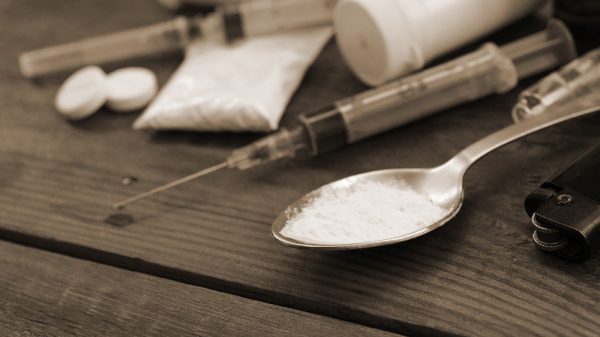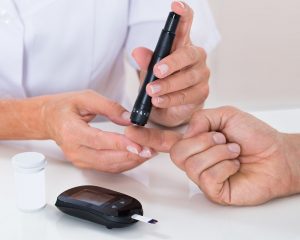Alcoholism is an extremely challenging condition to handle, for both the individual struggling with it those surrounding him or her. Having a family member or friend with alcoholism can be upsetting, bewildering, heart-breaking, and infuriating all at once. Here we provide a guide for how to help an alcoholic friend or family member while also preserving your own health and wellbeing.
Grasping Addiction
Alcohol consumption has been embedded in human culture for centuries and engaging in unhealthy drinking habits has become normalized. As a result, the abuse of alcohol is often overlooked. Unhealthy drinking patterns and alcohol abuse creates a slippery slope that can lead to full-blown alcoholism.
In order to most effectively support your addicted friend, it is crucial to understand what alcoholism is.
Alcoholism describes the chronic, compulsive consumption of alcohol that leads to disruption in relationships, work, and everyday life. For an individual struggling with addiction, it usually feels impossible to “just quit.”
Factors That Influence Addiction
Science has come a long way in uncovering the biological mechanisms that define addiction and still has a long way to go when it comes to understanding the best way to treat addiction. The causal factors that lead to addiction are extremely complex and encompass genetic, neurobiological, psychological, and social factors.
The molecular basis of alcohol addiction involves the limbic system. The limbic system is commonly described as the brain’s reward system and is designed to support the fundamentals of survival and reproduction. For example, the brain releases the “happy” neurotransmitter dopamine when we are eating. Eating makes us feel good, so we will be driven to eat again to sustain our survival. The release of dopamine in the limbic system is an adaptive mechanism that ensures survival-promoting activities.
However, external substances like alcohol can become involved in the limbic system and upset the careful balance of brain activity that reinforces healthy behaviors. The brain begins to release the dopamine rewards in response to alcohol consumption, leading to repetitive destructive behavior. The limbic system plays a crucial role in reinforcing continued alcohol consumption. In addition to causing disruptions in the limbic system, alcoholism also impairs normal emotional processing, decision-making, and control over physical movements.
Over time, chronic alcohol consumption leads to physical dependence. If someone is physically dependent on alcohol, they require it simply to avoid unpleasant withdrawal symptoms.
Because the mechanisms underlying addiction are so multifaceted, a similarly comprehensive approach must be taken to support complete recovery. Successful alcoholism treatment is usually a long-term process and incorporates healthy strategies for recovery that include detox, therapy, and support.
Warning Signs of Alcoholism
If your friend or family member is struggling with alcoholism or may have a drinking problem that could lead to alcoholism, you may observe these signs:
- Frequent blackouts
- Obsession with alcohol
- Personality changes
- Efforts to conceal drinking habits, like hiding empty bottles
- Missing appointments and planned outings
- Neglecting work and school responsibilities
- Separating from family and friends
- Losing interest in hobbies

Why It’s Important to Stop Drinking
Drinking takes a toll on the body and the mind and puts the addict’s life at risk
Sobriety Is Critical for Physical Health
From a purely physiological perspective, it is critical to stop drinking to preserve healthy organ functioning.
Alcohol takes a toll on the body and has serious repercussions for health. Ingesting alcohol puts an immense amount of stress on all organs in the body, including the liver, brain, heart, and digestive system.
When you consume alcohol, your body must process ethanol into forms that can safely enter the bloodstream and ultimately end up in the renal system for excretion. The liver is the organ that is responsible for processing alcohol into a nontoxic form. The liver, when constantly forced to process massive amounts of alcohol, is in a state of oxidative stress. Liver cells become damaged, cellular waste builds up, and over time this can cause the liver to function insufficiently. Excessive alcohol consumption can lead to alcoholic fatty liver disease. If alcohol consumption doesn’t stop, this can lead to more serious forms of liver damage like fibrosis and cirrhosis.
Alcohol also reaches other organs via the bloodstream and creates oxidative stress for muscle cells and brain cells. Alcohol can interfere with normal electrical signaling in the brain, which causes serious repercussions during alcohol withdrawal. The effect of alcohol on muscle cells also puts stress on the heart, hormones, and nearly every other organ system.
Chronic and excessive alcohol consumption over time can lead to organ burnout. An alcohol overdose during a binge-drinking episode can suppress involuntary cardiovascular activity, which can cause cardiac arrest and death.
Sobriety Is Critical for Mental Wellbeing
In many instances, alcoholism is a symptom of an even greater underlying problem. Sometimes, alcoholics are self-medicating to treat mental illness. Many alcoholics suffer from mental illnesses like depression, bipolar disorder, post-traumatic stress disorder, and anxiety. In many cases, alcohol consumption is a way for individuals to cope with past traumatic events or abuse.
Though addicts reach for alcohol as a coping strategy, excessive drinking tends to make underlying psychological and psychiatric issues worse. Alcohol is a depressant, meaning it suppresses central nervous system activity and interferes with neurotransmitter communication in a way that compounds existing issues. Additionally, compulsive alcohol consumption can be isolating and lead to more feelings of isolation that worsen mental illness.
Seeing a psychiatrist and getting cognitive-behavioral therapy is crucial for sorting out underlying mental issues, learning healthy coping mechanisms, healing, and finding peace.
Your Loved One Needs Your Support More Than Ever
Keep in mind that even if your friend or family member is battling addiction, support from trusted family members and friends is vital to a successful recovery. Feeling lonely is a common sentiment among addicts and you can play a part in helping your loved one maintain a social connection. Feeling loved, supported, and connected can help addicts seek and maintain sobriety.
Separate the Person from the Addiction
When it comes to helping an alcoholic friend or family member who is struggling with addiction, the two major pieces of the puzzle are separating the person from the addiction and supporting the person and without supporting the addiction.
Both of these steps are much easier said than done, so we’ve provided some action items and steps you can take to support recovery and inhibit addiction.
This is one of the most challenging things to do when you have a friend or family member who is struggling with alcoholism.
Separating the person from the addiction is best described as a mental shift that allows you to detach emotionally from their destructive actions, evaluate the situation as logically as possible, and help in the most constructive way possible.
Support the Person, Not the Addiction
Here are suggestions for supporting the recovery of the person you know, without supporting the addiction.
1. Be a Listener and Friend
You can continue providing steady support to your friend or family member struggling with alcoholism. They are lacking stability in their life, and you can be an important pillar of support.
2. Be Honest About Your Concerns
If you’re worried about a friend, communicate that. Even if alcohol abuse has not progressed to full-blown addiction, if you notice any of the warning signs discussed above, it’s best to confront your friend. The earlier alcoholism is faced, the better the prognosis for beating it. Make sure to emphasize that you’re coming from a place of love and avoid using an accusatory tone.
Be prepared to be met with denial and anger. Keep in mind that it is better to communicate your worries than to let them go unsaid, risking the progression of alcoholism to a more serious and extreme level. Burying issues can make them worse.
3. Be a Positive Influence
If your friend is struggling with alcoholism, it is crucial to be a positive force in their life. Being surrounded by positive influences is important for encouraging healthy behavior. If your friend or family member is surrounded by loved ones who are making healthy choices, they are more likely to make healthy choices as well.
4. Participate in an Intervention
Interventions are necessary when an alcoholic is unresponsive to loved ones’ concerns and expressions. At the end of the day, the alcoholic is responsible for taking steps to beat their addiction.
If your friend or a family member has reached the depths of their addiction, this usually means that they have been enveloped in the behavioral and physical effects of alcoholism and are no longer receptive to normal conversations. This is often described as “rock bottom.” An intervention is led by a professional interventionist, who is trained and experienced in handling addict behavior and complex family dynamics. An interventionist may also help clarify the next steps for handling addiction, including treatment options, family therapy, support groups, and sober living options.
An intervention often involves writing clear and concise letters that communicate how much you love the addict and how their addiction has been hurtful.
How to Help an Alcoholic Friend or Family Member in Treatment and Recovery
Acknowledging struggles with alcoholism and deciding to seek treatment are massive steps towards recovery and the first steps in what is usually a lifelong journey.
1. Support the Detox Process
Alcohol detox is the process of slowly tapering alcohol intake. Detox is a painful process that results in many unpleasant and sometimes life-threatening withdrawal symptoms. Whether your friend has decided to detox at home or a medical facility, there are things you can do to support the detox process.
2. Support a Healthy Diet
Chronic consumption of alcohol depletes the body of nutrients and inhibits the absorption of critical vitamins. Eating a healthy diet can help rebalance and repair both the body and mind during recovery.
In particular, alcohol clears B vitamins and omega-3 fatty acids from the body, which are necessary to support proper brain function. Moreover, research shows that for alcoholics, levels of amino acids in the blood are abnormal. Getting optimal ratios of essential amino acids is also extremely important if your loved one is suffering from liver damage and complications related to alcohol consumption. (1) Plus, essential amino acids and omega-3 fatty acids are crucial for lowering brain inflammation, supporting neurotransmitter synthesis, and improving mood.
Foods filled with antioxidants and anti-inflammatory agents can also help the body repair tissue damage in the liver. If you’re having a meal with a recovering alcoholic, you can help facilitate recovery by ensuring the meal is filled with fresh whole foods like fruits, vegetables, whole grains, nuts, lean meats, and fatty fish.
3. Ask What You Can Do to Help
Try directly asking your loved one how you can best help them. Maybe they want to have a weekly call with you or set up routine Thursday night dinners together. Or, maybe they feel that spending Friday nights watching a movie or cooking will help keep them from joining old friends at bars and clubs. Asking what is helpful can help guide you in ways to provide your support most effectively.
4. Volunteer or Take Up a Hobby Together
Volunteering at soup kitchens, homeless shelters, or schools can be a great way to gain other perspectives and give back to communities. Interacting with individuals from a variety of backgrounds can foster connection and understanding.
Adopting a new hobby can help add interest to your friend or family member’s routine and may also help distract from cravings. Try something new together, like attending an art, sculpture, photography, or theater class. Expressive activities such as these can be a constructive and cathartic method for channeling emotions that could otherwise lead to temptations to drink.
Learning a new skill can boost confidence levels and improve brain plasticity. At the same time, working on a new skill can promote bonding with others through common interest and may help facilitate the formation of new friendships.
Spending time outside hiking and climbing can also be a healthy activity that facilitates physical activity and helps release anxiety.
5. Attend Meetings and Appointments
If it would be helpful to your loved one, you can attend meetings and follow up doctor’s appointments. Having a second ear to listen to information and provide another perspective can be very supportive. At the same time, if your loved one would prefer going alone, that’s ok too.
Alcoholics Anonymous is a support group for alcoholics who are can be invaluable resources for sharing advice and working on sobriety in a community. (2)
6. Participate in Family Therapy
If you are a close family member of an addict, family therapy is a critical part of the recovery process. Addiction is often described as a family disease since it drastically affects those close to the addict. Family therapy helps all involved members understand addiction and learn helpful support strategies and teaches both family members and the addict how to draw healthy boundaries that support the wellbeing of everyone involved.
7. Support Professionals’ Recommendations
Medical professionals and therapists have a great deal of experience working with addicts. It’s common for alcoholics to initially dislike treatment centers during the first few weeks or to want to leave sober living. There may be a plethora of reasons why addicts dislike a therapeutic environment: they feel like they don’t fit in, they miss home, or they’re craving their drug of choice. Regardless of any cited reasons, validate their feelings while reiterating how the treatment is part of the process and it will have long-term benefits.
For example, don’t offer your home as a place to stay if they leave their treatment facility. Avoid supporting their plans to leave a treatment center or sober living. Undermining proven therapeutic circumstances can set back your friend or family member’s recovery journey.
8. Continue to Provide Your Love and Support After Treatment
Going through detox and entering treatment are only initial steps in a long process. Your love and emotional support are invaluable in sustaining healthy habits for a recovering alcoholic.
Relapse during the recovery process is extremely common. If you see your friend slipping into old habits, don’t tiptoe around them and avoid the subject. It is best, to be honest and voice your concerns with love and without judgment. They may be angry at the moment, but addicts need to be surrounded by people who are not afraid to hold them accountable.
9. Suggest Extra Support Resources
If your friend or family member is facing physical or financial barriers to getting support and therapy they need, suggest online resources. Alcoholics Anonymous offers online AA meetings, which help alcoholics connect despite physical disabilities or transportation issues. (3)
Free online therapy may be difficult to find, but online therapy through apps like Talkspace and BetterHelp can be a much more affordable and convenient option.
How to Help an Alcoholic That Doesn’t Want Help
In many cases, individuals struggling with alcoholism may be in denial about their problematic alcoholism. Treatment for substance use disorders is tricky because the outcome of treatment often hinges on the addict’s acceptance of their alcoholism and willingness to receive treatment. If your loved one has refused treatment up to this point, despite family and friends’ best efforts and interventions, here are a few things you can do:
1. Be Patient
If your friend or family member is still in denial, that doesn’t mean that they will always remain in denial.
2. Draw Healthy Boundaries
Don’t spend time with the addict to the detriment of your personal life, health, and wellbeing. It’s important to avoid forming a codependent relationship with the alcoholic. Codependency is not helpful for either party and increases emotional turmoil.
3. Seek Therapy or Attend Family Support Meetings
Al-Anon Family Groups is an invaluable resource for families and friends of alcoholics. (4) Check the meeting search tool on their website to find location and time that works for you. (5)
Talking to other people who are in the same situation as you are can be comforting. Millions of people across the United States are affected by an individual with alcoholism. Learning others’ stories and hearing other perspectives can help you take steps in healing yourself.
Other Resources
The Substance Abuse and Mental Health Services Administration (SAMHSA) is part of the U.S. Department of Health and Human Services. SAMHSA provides support, information, and resources for treatment as well as current news, research, and learning opportunities. (6)
Precautions: Don’t Sacrifice Your Own Mental Health
Supporting an alcoholic friend can be draining and deplete you of your emotional reserves if you don’t take steps to preserve your own mental health and wellbeing. Remember that you cannot control your loved one, and it’s impossible to force someone to be sober. Beyond the action items discussed above, there is not much you can do, and it is ultimately the responsibility of the addict to seek treatment. Addiction treatment is serious and requires professional help.
Conclusion
Alcohol addiction is a destructive disease that causes severe physical health issues, mental health issues, and behavioral health issues. Alcoholism is a potentially life-threatening disease. If you have a friend or close family member who is struggling with alcoholism, there are things you can do to be a positive influence in their life and support their recovery. Be sure to take care of yourself in the process.
References:
(1) https://www.ncbi.nlm.nih.gov/pubmed/6342443
(3) https://www.onlinegroupaa.org/
(5) https://al-anon.org/al-anon-meetings/find-an-al-anon-meeting/























